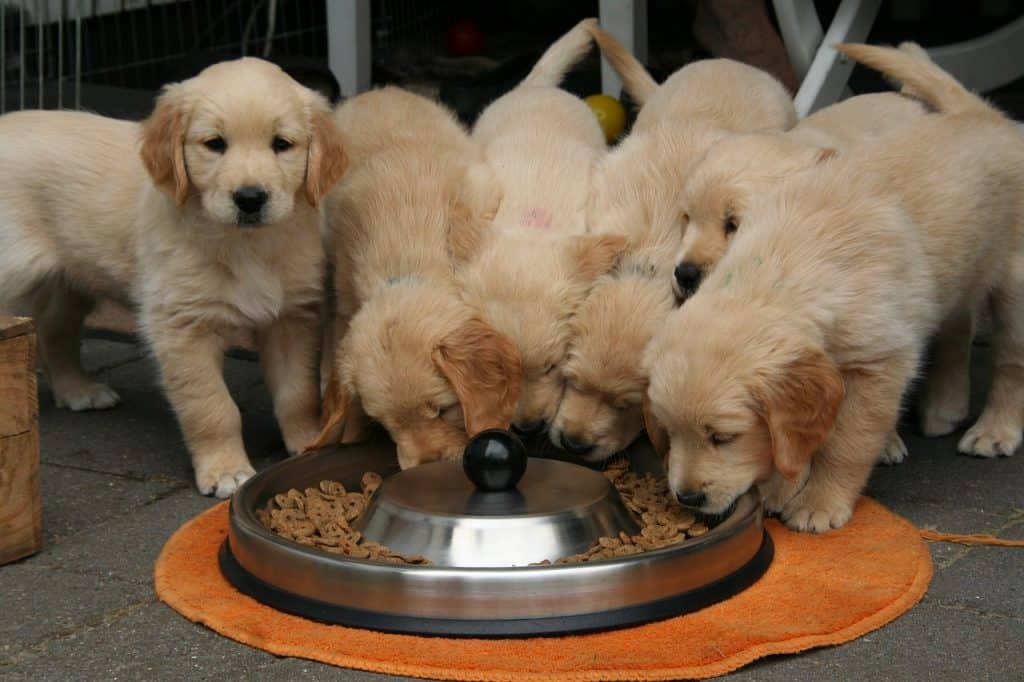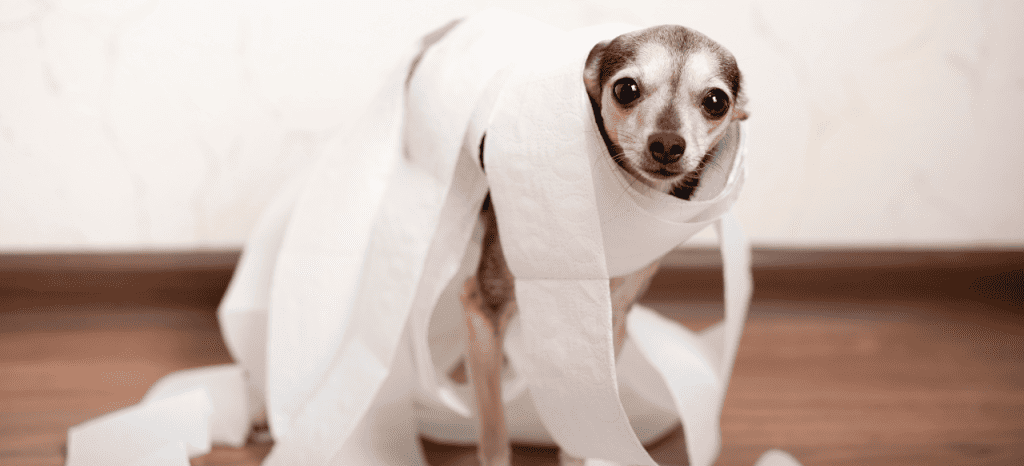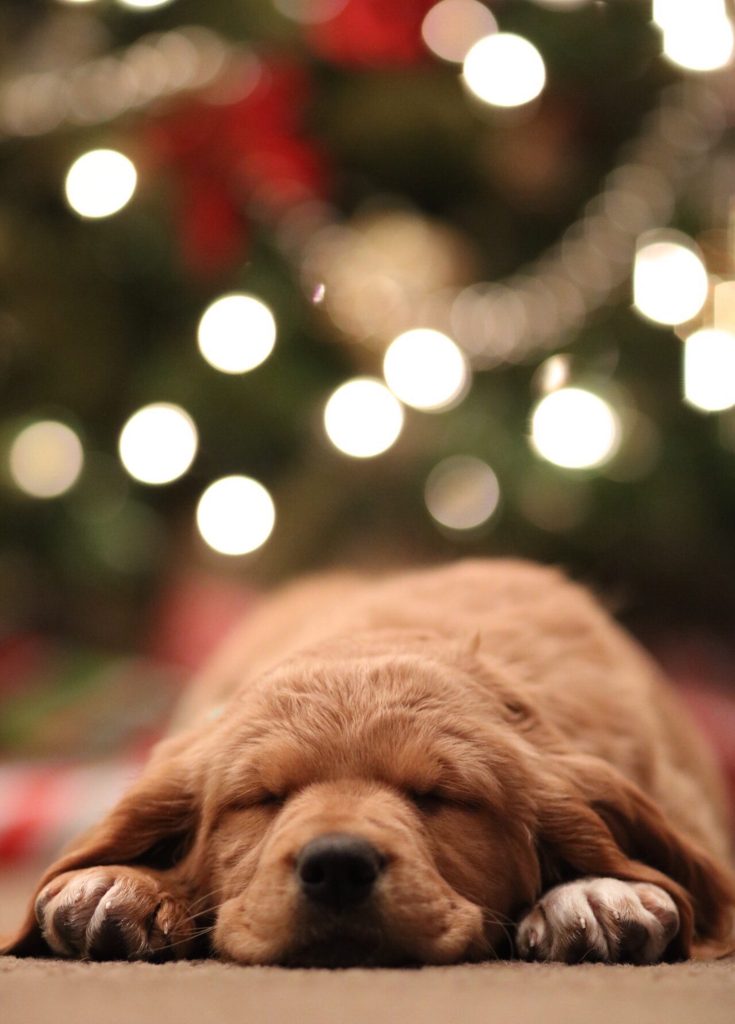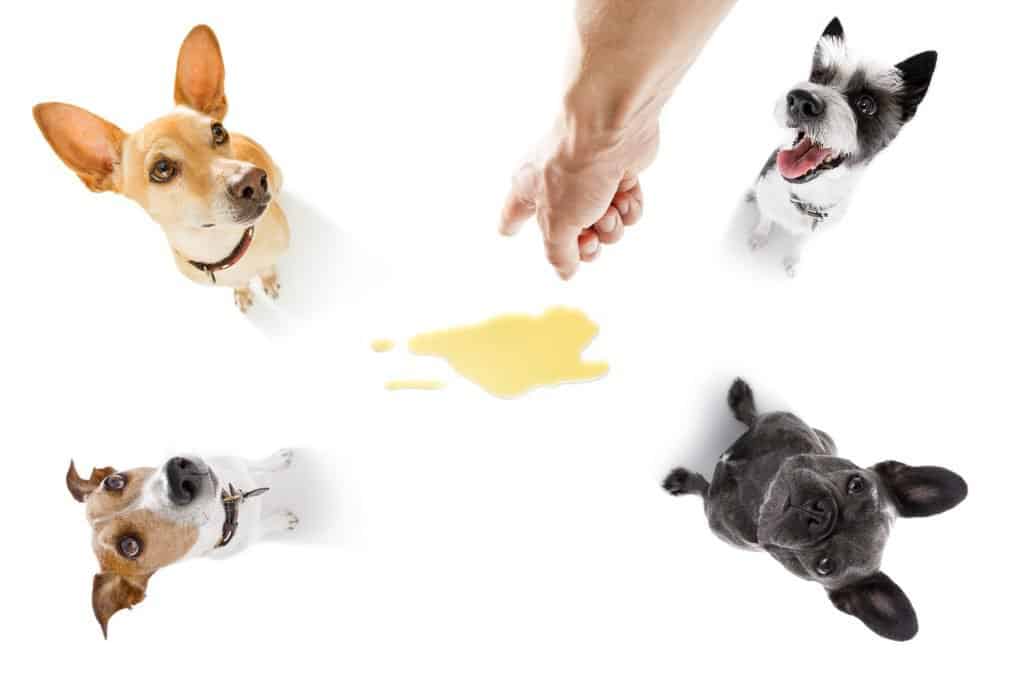Puppies are adorable bundles of joy but can also be mysterious creatures, especially regarding their bathroom habits. Many new puppy owners ask, “Why does my puppy poop so much at night?” Well, fear not, fellow puppy parent, because we’re about to embark on a journey into the intriguing world of nighttime puppy poop. Get ready for some surprising, entertaining, and downright quirky reasons behind this phenomenon!
The Midnight Munchies
Have you ever experienced that insatiable, late-night craving for a snack that won’t let you rest until you’ve satisfied it? Maybe it’s a bag of chips, a slice of leftover pizza, or that irresistible ice cream tub calling your name from the freezer. You lie there in bed, tossing and turning, trying to ignore your growling stomach, but eventually, the craving wins, and you reluctantly crawl out from beneath the cozy covers to indulge in a midnight snack. Well, guess what? Your puppy sometimes feels the same way!
Picture this: your adorable little furball, snugly tucked into their crate or on their bed, their eyes slowly closing as they drift off into dreamland. But then, in the deep of night, a familiar sensation stirs within them—an undeniable hunger pang. Their tiny tummy, like yours when those midnight snack attacks strike, can’t hold out until the sun rises.

The difference is that while you might grumble and groan about your cravings, your puppy doesn’t have the luxury of reasoning with their hunger. When that unmistakable sensation strikes, they can’t strategize about breakfast being just a few hours away. No, when craving hits, it’s an immediate, all-consuming urge that demands attention.
So, in the quiet of the night, your pup musters all the determination it can muster, and, much like you, when you finally give in to your snack cravings, they make their move. With sleepy eyes and a sense of urgency, they signal to you that they must go. The need is too pressing to ignore, and they can’t help but whimper or scratch at their crate, begging to be let out.
In a way, it’s a testament to their innocence and vulnerability. Like their entire world, your puppy’s appetite revolves around the immediate present. They don’t think about calories or meal schedules; they think about satisfying their growling belly and rely on you, their loving caregiver, to help them do just that.
Dreamland Dumps
We’ve all experienced it at some point – that sudden and urgent awakening from a deep slumber when nature calls and you realize you need to use the bathroom right away. It’s a moment of dizzy confusion and the realization that you must quickly navigate to the toilet in the dark. Well, guess what? Your puppy goes through something remarkably similar!
Imagine your puppy’s dreamscape for a moment as they sleep soundly beside you. In their puppy dreams, they might envision themselves on grand adventures, perhaps chasing butterflies through lush meadows or frolicking on a pristine beach. Their imaginations run wild, and they’re the heroes of their epic tales. But, just as you may suddenly find yourself in the middle of a thrilling dream, they, too, find themselves in a moment of urgency.
In the dream world, your puppy might have the time of their life, racing across open fields, splashing through crystal-clear streams, and exploring enchanted forests. However, there’s a twist in this whimsical narrative: they’re also on a quest to find the perfect spot to relieve themselves. Like you, when nature calls, they answer, even if it’s in the fantastical landscapes of their dreams.

But here’s the kicker: as your puppy romps through these dreamscapes, they don’t have the luxury of a bathroom to run to. They’re in the midst of their adventure, and their little bodies can’t discern between the dream world and reality. So, when that moment of urgency arises within their dream, it reflects in their waking fact.
Just as you might jolt awake, realizing you can’t wait any longer, your puppy experiences a similar sensation. They may suddenly awaken, bewildered and disoriented, only to discover that their dream-time quest has translated into a real-life predicament – they’ve been holding it all night. Their instinct is to find a suitable spot to answer nature’s call, which often involves signaling to you, their trusted companion, that it’s time for a midnight bathroom break.
The Potty Paradox
Puppies, those bundles of energy and cuteness, are often likened to “little bladders on legs” for a good reason. Their petite frames house digestive systems that operate at a remarkable speed, making them akin to tiny, ticking time bombs when it comes to potty breaks. Here’s a deeper look into this intriguing aspect of puppy physiology and how it translates into more nighttime bathroom breaks for you.
The Tiny Tummy Phenomenon: First and foremost, it’s essential to understand that puppies have significantly smaller stomachs than adults. This miniature digestive system is like a high-powered furnace, rapidly processing the food they consume. As a result, the time between eating and the inevitable outcome could be much longer. Just as a high-speed train swiftly reaches its destination, your puppy’s food journey concludes almost as soon as it begins.

The Potty Paradox: This phenomenon creates a potty paradox. Since puppies process food so quickly, the need to eliminate waste arises more frequently than it does in older dogs. They can’t hold onto things for very long. Think of it as a continuous cycle: food goes in, energy is extracted rapidly, and what’s left over must come out. This constant turnover surprises new puppy owners who may not be accustomed to the regularity of these bathroom breaks.
Nighttime Necessities: Let’s apply this knowledge to the nighttime scenario. While adult dogs can often go through the night without needing a bathroom break, puppies are still amid this “potty paradox.” Like their stomachs, their bladders are small and less capable of holding urine for extended periods. So, when bedtime arrives, it’s like setting a timer for inevitable midnight action.
The Midnight Alarm Clock: Picture this: You and your puppy snuggle up for the night, drifting off to sleep. However, as the hours pass, your pup’s internal clock starts ticking loudly. It reminds them that, despite the darkness and stillness of the night, their body is already at work, processing yesterday’s dinner. This can trigger a middle-of-the-night wake-up call, prompting your pup to nudge you awake or make some noise to signal their pressing need.
Nighttime Nervousness
Transitioning from a breeder or shelter to a new forever home is a monumental life change for any puppy. It’s a shift from the familiar to the unknown, and it’s perfectly natural for puppies to experience some anxiety during this adjustment period. Just as humans might feel uneasy in a new environment or when faced with unfamiliar situations, puppies are no different. Nighttime, in particular, can be a time of heightened vulnerability for them.
The Comfort of Familiarity: Puppies are creatures of habit. In their previous environment, they had a routine, interactions with their littermates, and the comforting presence of their mother. This familiarity is a source of security and reassurance. However, when they move to their new home, everything is different – the scent, the sounds, the people, and the surroundings. This sudden change can understandably trigger a sense of unease and uncertainty.
The Dark and the Unknown: Nighttime accentuates this feeling of unfamiliarity. When the lights dim and the household becomes quiet, it’s as if a shroud of mystery envelops their new surroundings. With their heightened senses, puppies may become more alert and sensitive to the sounds and shadows that come with the night. This unfamiliarity with the dark can add to their anxiety.

The Stress-Induced Upset Tummy: Stress and anxiety can affect a puppy’s digestive system like humans. When they’re feeling anxious or unsettled, it can lead to an upset tummy. Stress hormones can affect the digestive process, causing irregularities that require a midnight potty break. It’s almost as if their bodies respond to their emotional discomfort with a physical reaction.
The Need for Reassurance: Puppies, like young children, often seek comfort and reassurance from their caregivers. They may look to you for security when they’re feeling scared or anxious. Sometimes, a trip outside to the familiar scent of the yard or a quick cuddle can provide the comfort they need to settle their nerves and alleviate their anxiety.
The “Poop Train” Effect
Puppies are inherently social creatures, and their pack mentality is deeply ingrained in their DNA. They thrive on social interactions and are often keen observers of the behavior of other dogs, especially older and more experienced ones. This social aspect of their nature can even extend to their nighttime bathroom habits, resulting in a fascinating phenomenon known as the “poop train.”
In a household with multiple dogs, the dynamics of pack behavior come into play, even during the quiet night hours. Here’s how this intriguing behavior unfolds:
Emulating the Pack: Puppies naturally look up to older dogs in the household as role models. They observe and learn from the actions of their canine companions. So, when an older dog in the family establishes a nighttime bathroom routine, the puppy takes notice.
Monkey See, Monkey Do: Puppies often adopt the “monkey see, monkey do” approach to life. If they witness an older dog heading outside for a midnight potty break, they might think, “Well, if it’s good enough for them, it’s good enough for me!” This mimicking behavior stems from their instinctual desire to fit in with the pack and follow the lead of their older pack members.

Joining the “Poop Train”: The result? Your puppy decides to hop on the “poop train” and enjoy the fun. They may not even have a pressing need to relieve themselves, but the activity’s social aspect draws them in. It’s like a nighttime canine adventure club, and your puppy wants to be part of the action.
Reinforcing Bond and Routine: This behavior reflects their instinctual pack mentality and reinforces the bond between your dogs. Nighttime bathroom breaks become a shared experience, fostering a sense of togetherness among your furry family.
Potential for Midnight Playtime: Sometimes, the puppy’s enthusiasm for nighttime bathroom outings can inadvertently lead to midnight playfulness. They might interpret the bathroom break as an opportunity for a little nighttime romp, making it all the more challenging for you to get them back inside.
“I Gotta Mark My Territory”
Puppies come equipped with a set of innate instincts from the moment they enter the world, and one of the most primal of these is the need to mark their territory. This behavior, deeply rooted in their canine ancestry, is about establishing their presence and asserting themselves in their environment. But what’s truly fascinating is that this territorial drive can manifest at any time, even in the dead of night when you least expect it.
Ancestral Instincts: The urge to mark territory is a direct throwback to a dog’s traditional roots. In the wild, marking territory served as a way for canines to communicate with other pack members. It signaled not only their presence but also their claim over a particular area. While our modern dogs may live in cozy homes, this ancient instinct still resides.
Sense of Ownership: Puppies are eager to establish a sense of ownership and belonging in their new environment. When they detect the scent of other animals, whether it’s a passing neighborhood cat or the lingering trace of a previous dog occupant, it triggers their instinctual response. They must assert themselves and declare that this territory is now under their watch.

Exploration and Curiosity: Puppies are naturally curious and love to explore their surroundings. As they venture around your home and yard, they encounter various scents and odors left behind by other animals. These scents pique their curiosity and may lead them to mark the area to claim it as their own.
Nocturnal Activity: Dogs are crepuscular animals, which means they are most active during the dawn and dusk. This activity pattern, combined with their heightened sense of smell, can make them more attuned to the scents in their environment during the night. When they pick up on unfamiliar odors or the smell of potential intruders, their territorial instincts may kick in, even if it’s 2 AM.
The Mystery of the Moonlight Snacker
Indeed, here’s the paragraph without subheadings:
Curiosity is a defining and endearing trait of puppies, and this innate sense of wonder keeps their owners both charmed and vigilant, particularly during the quiet hours of the night when the rest of the world is in slumber. When a puppy embarks on a late-night exploration, they transform into pint-sized detectives armed with an insatiable desire to unearth hidden treasures and forgotten secrets in the nooks and crannies of your home. Yet, this quest for excitement can occasionally take an unexpected detour—a spontaneous bathroom break.
Let’s delve deeper into why puppies’ late-night escapades can lead to these unanticipated bathroom interludes:
Puppies possess a remarkable ability to detect what often eludes human perception. They can pick up the faintest aroma of a treat tucked beneath a couch or the nearly inaudible rustling of a toy stashed away in a corner. When they chance upon these concealed delights, their curiosity ignites, propelling them headlong into investigation.
Puppies openly express their emotions through wagging tails and animated antics. The moment they stumble upon something thrilling—a long-lost chew toy or a treat forgotten amidst the chaos—their excitement scales lofty heights. This surge of emotion can unwittingly trigger physiological responses, including a sudden and pressing need for bodily relief.

Nocturnal adventures can inject a puppy with an infusion of vitality. Their metabolism shifts into high gear as they immerse themselves in play or vigorous exploration. This heightened metabolic activity can expedite the digestive process, ushering in an unforeseen and urgent call of nature.
Play is a cornerstone of a puppy’s learning journey. It is their primary avenue for comprehending their surroundings and honing their cognitive faculties. Their nighttime odysseys aren’t just about merriment; they are a conduit for amassing valuable insights about their environment. In their zeal to decipher the enigma of their world, they may momentarily disregard their bodily needs.
The Express Delivery System
A puppy’s digestive system is like a well-oiled machine that operates at lightning speed. Unlike their adult counterparts, who might leisurely process their meals, puppies have a metabolism that could rival the swiftness of a cheetah. This means that what goes into their tiny stomachs often makes a rapid exit.
Imagine your puppy’s dinner as a high-speed train hurtling down the tracks. From the moment they take their first bite, the journey towards digestion is a sprint rather than a stroll. Their stomachs kick into overdrive, breaking down food with remarkable efficiency. Nutrients are absorbed, energy is extracted, and waste is swiftly ushered toward the exit.

If your pup enjoyed a particularly hearty dinner, they’ve just loaded up a freight train with cargo. Their little bodies work diligently to process this influx of nutrients and calories. The result? A sense of urgency when it comes to bathroom breaks, even during the late hours of the night.
If your puppy had a substantial meal, you can bet that their digestive system is primed and ready for a late-night delivery service. It’s the price they pay for their lightning-fast metabolism and growing bodies.
The “Just In Case” Approach
Puppies are, in many ways, creatures of caution. Their instincts are finely tuned to avoid potential mishaps and ensure their safety. This cautious behavior extends to their bathroom habits, and they often adhere to the “just in case” principle, which means they may not have an urgent need to relieve themselves, but they’ll err on the side of caution and take a trip outside to prevent any potential accidents.
Here’s a closer look at why puppies tend to follow this “just in case” approach:
Instinctual Caution: From a young age, puppies learn to be cautious about their surroundings. In their early weeks and months of life, they rely on their mother and the safety of their den for protection. Venturing into the great outdoors, away from the familiar confines of their hole, can be unsettling. This instinctual caution often translates into a readiness to go outside, even if it’s just to play it safe.
Avoiding Accidents: Puppies are still in the process of mastering their bladder and bowel control. While they may not feel an urgent need to go, they know that accidents can happen and want to avoid soiling their living area. Going outside becomes a precautionary measure to ensure they don’t have any accidents indoors.

Scent and Territory: Puppies have a keen sense of smell. When they venture outside, they encounter a world filled with aromas and odors, many of which are left behind by other animals. This exploration satisfies their curiosity and allows them to mark their territory, even if it’s just a tiny part of the yard. This instinctual marking behavior is another way they play it safe: by staking a claim to their territory.
Routine and Training: Puppies thrive on routine and consistency. If you’ve been taking them outside regularly for bathroom breaks, they learn this is part of their daily routine. Even if they don’t have an immediate need to go, they might expect this outdoor excursion as part of their training and habits.
Growing Pains
Puppies are like little bundles of dynamism, constantly in flux as they navigate the exciting journey of growth and development. This remarkable phase of their lives is characterized by rapid physical changes, including the maturation of their digestive system. These transformations occasionally lead to temporary digestive upsets, resulting in more frequent nighttime bathroom trips. But fret not, for it’s all an integral part of the enchanting process of puppyhood!
Let’s dive into why puppies experience these growing pains and how they manifest in those late-night bathroom escapades:
Rapid Growth and Development: Puppies are turbocharged growth machines. Their bodies are on an accelerated trajectory toward adulthood, including their digestive system development. Organs like the stomach and intestines are rapidly maturing, but they might not continuously operate with the precision and consistency of their adult counterparts.
Learning to Process Foods: Just like humans, puppies need time to learn how to effectively process different types of foods. As they transition from a diet of mother’s milk or puppy formula to solid foods, their digestive system encounters new challenges. It’s like learning to drive a car; there may be a few bumps before smooth cruising.
Dietary Changes: Puppies often undergo dietary shifts as they grow. They may transition from one type of puppy food to another or even from puppy to adult food. These nutritional adjustments can sometimes result in temporary digestive disturbances until their system adapts to the new fare.

Teething Troubles: Teething is another aspect of puppyhood that can disrupt their routine. The discomfort of teething may lead to increased saliva production and swallowing, which can, in turn, affect the stomach and trigger more frequent bathroom breaks.
Energy Expenditure: Puppies are bundles of boundless energy. Their incessant play, exploration, and learning require considerable power. This high activity level can rev up their metabolism, causing food to move through their system more swiftly and potentially prompting the need for more frequent bathroom trips.
Conclusion
So, there you have it! The mystery of why your puppy poops so much at night isn’t all that mysterious after all. It combines their tiny tummies, curiosity, growing bodies, and nighttime nerves. Remember, as your puppy grows and matures, their nighttime potty habits will likely change. Until then, embrace the adventure of puppy parenthood, including those midnight potty excursions. They’re just a few quirks that make your furry friend so unique!

